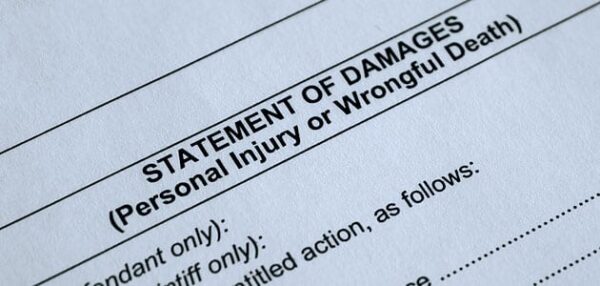
Historically, when someone died minimal remedies were available to the loved ones left behind. Thankfully Maine, like many other states, changed this rule by enacting Death and Survival Statutes. In Maine, we have both a Wrongful Death and a Survival statute, and although both are triggered by death, Wrongful Death claims and Survival claims are largely distinct from one another.
In Maine, a Wrongful Death claim may be brought when the death of a person is caused by a “wrongful act, neglect, or default” that would have otherwise allowed the deceased to pursue a personal injury lawsuit had the death not occurred. This requires a showing that there was some connection between the defendant’s negligence and death.
Who can bring a wrongful death claim in Maine?
Maine requires all wrongful death claims to be brought in the name of the “Personal Representative” of the decedent’s estate. A Personal Representative will sometimes be designated in the decedent’s will or can be appointed by the court. Though a wrongful death claim must be brought in the name of the Personal Representative, any damages awarded are not given to the personal representative individually, but rather, are awarded to the estate to be distributed to the proper beneficiaries.
Who benefits from a wrongful death claim?
Although Wrongful Death claims must be brought in the name of the Personal Representative, beneficiaries of a Wrongful Death claim may include the spouse, children, parents, and other family members of the deceased. Surviving spouses and dependent children of the deceased may be able to recover particularly large claims, especially if the deceased was the family’s sole provider.
What damages are available in a wrongful death suit?
Courts analyzing Wrongful Death claims typically break damages down into one of two categories: pecuniary (money) and non-pecuniary (non-money). The primary difference between the two is that non-pecuniary damages are limited, or “capped”, by the Wrongful Death statute and pecuniary damages are not. However, what qualifies as pecuniary or non-pecuniary damage is not always clear, so it’s important to have a qualified Maine wrongful death attorney to help you when pursuing a claim.
Damages sought in a Maine wrongful death lawsuit may include:
- Non-pecuniary damages: These usually cover “emotional” injuries such a loss of society, comfort and companionship of the deceased or emotional distress arising from the incident that caused the death. Since it can often be difficult to monetize these injuries the Wrongful Death Act limits the amount of money that can be awarded for non-pecuniary damages. Currently, non-pecuniary damages in a Wrongful Death suit cannot exceed $400,000 in Maine.
Pecuniary: Though Maine’s Wrongful Death statute caps non-pecuniary damages, it does not cap pecuniary damages. This means that the amount of pecuniary damages that an estate can be awarded is potentially very high, which is why you will want to have a skilled attorney assist you with your case.
Punitive Damages: These may also be available in some cases. Punitive damages are meant to punish and deter the defendant and others from engaging in conduct similar to that which formed the basis of the lawsuit. Like non-pecuniary damages, punitive damages are also capped. Currently, punitive damages in a Wrongful Death suit cannot exceed $75,000 in Maine.
Other Damages: Money for funeral and burial expenses, property damage costs, and medical bills related to the death may also be recoverable in a Wrongful Death claim.
When should a wrongful death claim be filed?
Maine’s Wrongful Death statute requires that a claim be filed no later than 2 years after the date of death. Claims filed after this date will most likely be barred so it is important to be mindful of this deadline.
What if a criminal case is already being pursued?
Wrongful death claims are civil claims, and therefore may be filed even if a criminal case is being pursued on the same facts. However, it’s best to consult an attorney first to see how a criminal case may affect your Wrongful Death claim.
Maine Survival Act Claims
Maine’s survival statue provides another remedy for the loved ones of the deceased. The statute provides that a cause of action possessed by the decedent at the time of death may be pursued by the decedent’s estate. This means that if the deceased had no claim at the time of death, then the survival statute will not apply.
Like wrongful death claims, survival claims must also be brought in the name of the Personal Representative, and any damages recovered are given to the estate to be divided between the proper beneficiaries.
Personal Injury Attorneys Maine Knows and Trusts
For over 30 years, the Maine personal injury lawyers at Hardy, Wolf & Downing have successfully secured substantial Wrongful Death and Survival settlements and jury awards for clients in Bangor, Portland, Lewiston and throughout the state. To speak with an experienced Maine wrongful death lawyer, please call 1-800-INJURED today. All initial consultations are free of charge, and you owe us no fees whatsoever unless we win your case.


